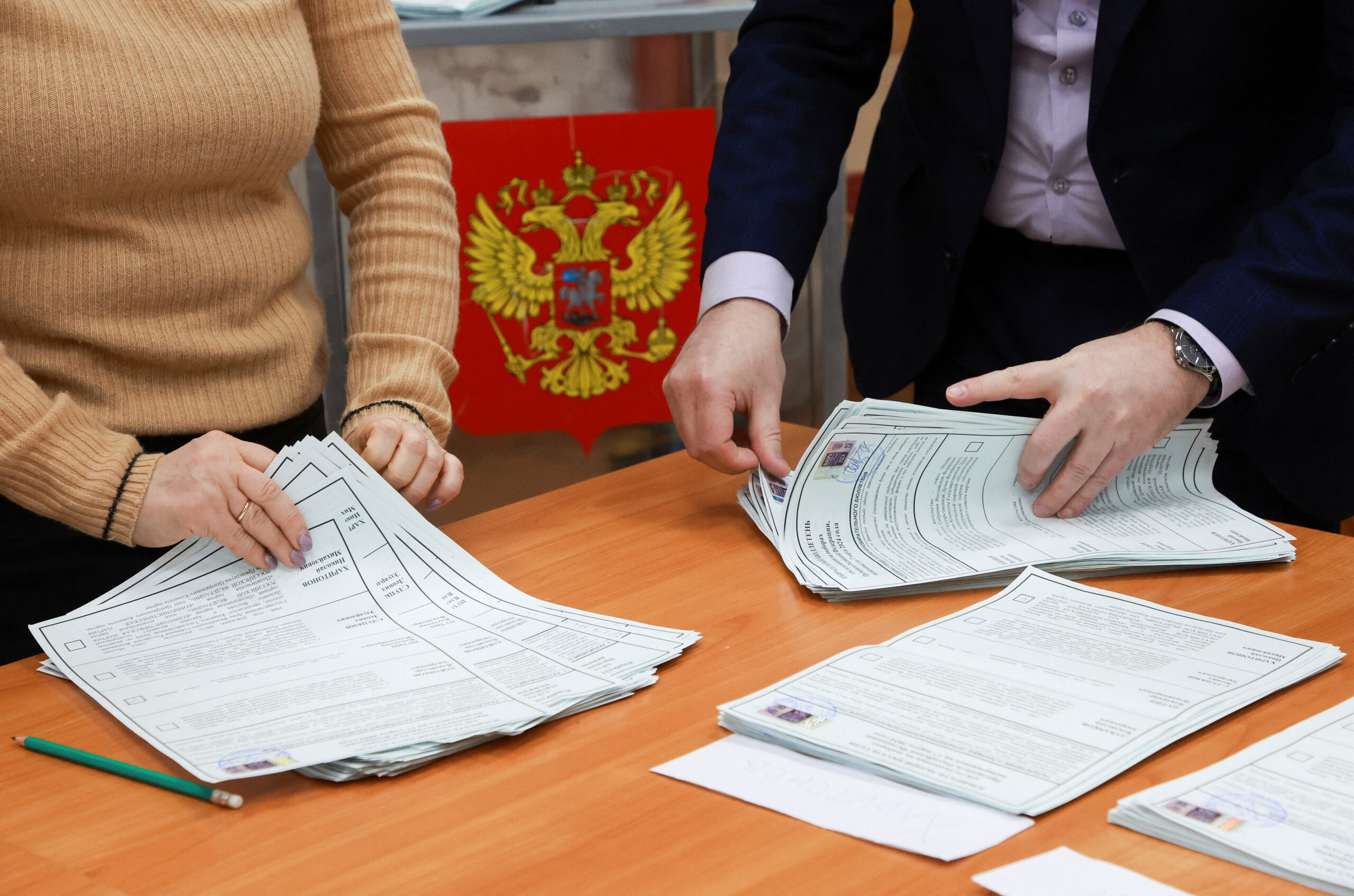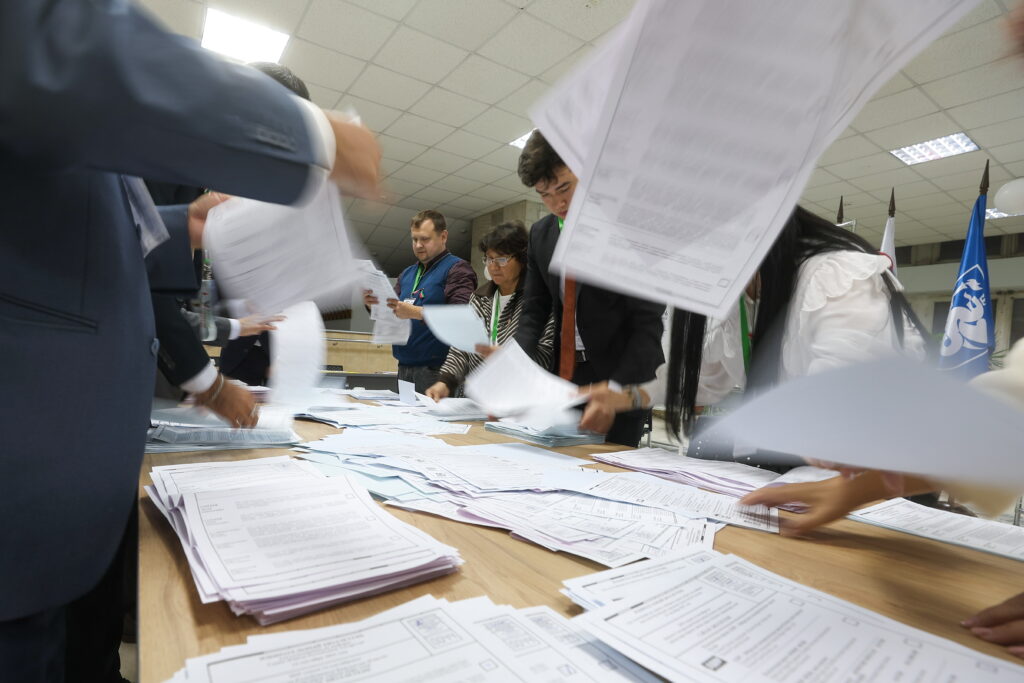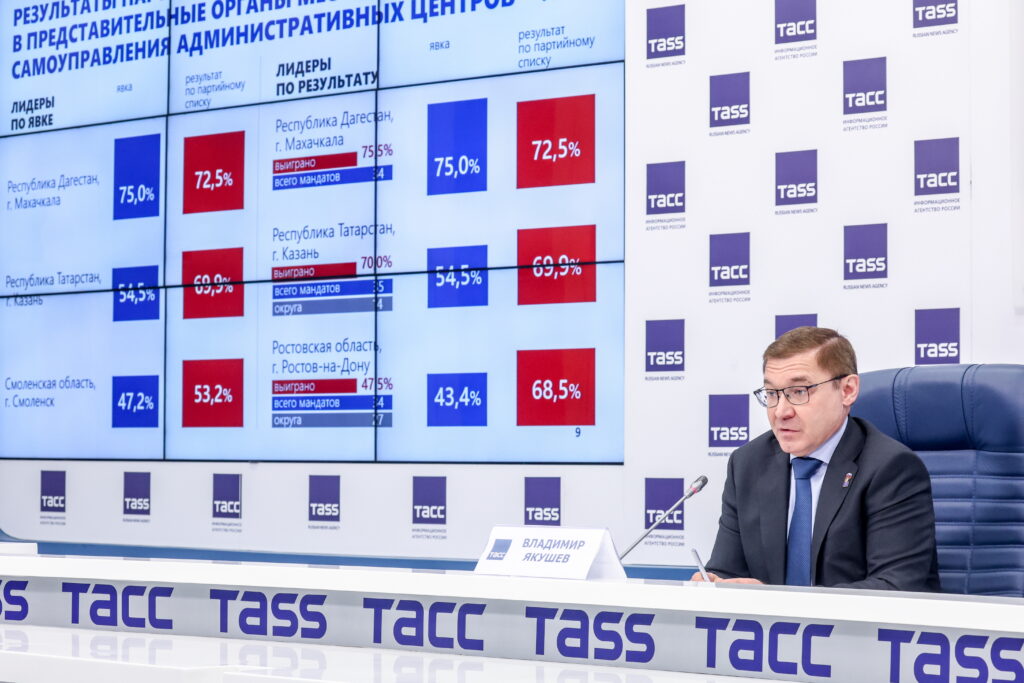On September 8, 2024, the Russian authorities will hold 4,140 election campaigns of various levels on the territories they control, ranging from village elections to by-elections for State Duma deputies, including elections to regional and city parliaments in annexed Crimea and Sevastopol. Among these thousands of elections there will be by-elections for State Duma deputies in three single-mandate districts, direct elections of governors of 21 regions, elections of deputies to 13 regional parliaments, 20 city councils of administrative centers of regions and direct elections to two regional capitals: Anadyr and Abakan.
The situation in which the elections are being held is not the easiest for the authorities. Since July 1, housing and utilities prices have risen sharply across the country, public transportation fares have increased significantly in many regions, tax reform has begun, and the mortgage subsidy program has been cancelled. The municipal reform, which is designed to destroy the lower level of local self-government — the most popular and closest to the people — is also being met with resistance and dissatisfaction. In addition, there is a high level of public fatigue and even irritation after the presidential elections that ended only four months ago, when people were under unprecedented pressure and then saw the absolutely unbelievable official figures of «popular support».
The federal and regional authorities have realized that they need to let people blow off steam, so the governor of St. Petersburg is freezing the increase in housing and utility rates in his city during the election period, in some regions they are suspending the merger of municipalities, and the presidential administration is reportedly holding meetings with the vice-governors for internal affairs with instructions to show moderate results in terms of voter turnout and, most importantly, in terms of the number of votes cast for the heads of the regions.
However, it is too early to say in which of these regions, if any, campaigns will be really competitive, since the process of registering and even nominating candidates has not yet been completed. Moreover, the administrative voting machines that have suppressed competition and falsified results will find it very difficult — and frightening — to abandon these practices.
The gap between the people and the state apparatus is growing
The authors of a recent study conducted by the Public Sociology Laboratory conclude that the gap between the people and the Russian state is growing. This is evidenced by the results of election monitoring, in particular by the steps taken by the authorities to further restrict the possibility of voters’ forming and expressing their free will.
Riddle has repeatedly written about the state of voting rights in Russia. The situation is getting worse every year, although it seems that it could not be worse than it already is. The authorities are pursuing a deliberate policy to further alienate the people from the possibility of participating in the governance not only of the state, but even of their own village, in order to cut them off from any political action.
Last year, a number of legislative changes were adopted in the electoral sphere. For example, they allowed elections to be held under martial law, increased the dependence of election commissions on local authorities (by allowing regional co-financing in federal elections). However, the most important changes were related to the disenfranchisement of persons who were included in the Register of Foreign Agents and/or the Unified Register of Information on Persons
Involved in the Activities of an Extremist or Terrorist Organization. First of all, they were deprived of the right to passive suffrage. In addition, they were banned from being «trusted» and «authorized» representatives of candidates and electoral associations, observers (the ban on membership in electoral commissions for «foreign agents» was established earlier).
Thus, the authorities now have the instruments at their disposal to deprive citizens of their passive right to vote in an extrajudicial way and without any serious justification, even in the initial stage of the electoral campaign. This effectively legalizes utter administrative arbitrariness. The first decisions of the Ministry of Justice to add people to the register of «foreign agents» showed that the authorities have begun to use this opportunity to prevent Ekaterina Duntsova, Marina Litvinovich and Igor Artemyev from participating in the elections by labeling them as «foreign agents».
In total, more than 450 people are currently included into the registry of foreign agents, which is larger than the number of Duma MPs. Considering that some of these people are charismatic politicians, this is already a sizeable cohort for the political class of any country. More importantly, the authorities have the ability to arbitrarily declare anyone a «foreign agent» at any time. In fact, the Ministry of Justice can become the chief administrator of elections (and a much more powerful one at that than the Russian Central Election Commission) since it can, with a simple stroke of the pen of the head of the department, deprive any candidate who has not yet been registered of the right to run in the elections and be elected.
The provision that a candidate who has already been registered cannot be recognized as a «foreign agent» could be considered a certain limitation of this arbitrariness, but this limitation is offset by the possibility of doing so after he or she has won the elections: the freshly acquired mandate can simply be annulled.
Regional legislation has been stabilized
At the same time, there has been a certain stabilization of regional legislation, which had been in serious disarray in recent years: the number of seats in regional and local parliaments distributed by party lists was cut, districts were redrawn, and opportunities for self-nomination in regional elections were reduced. All this was done in the interests of the incumbent authorities.
This year these practices have been practically discontinued. Moreover, in some places the situation is even slightly improving. For example, not a single region electing deputies to their legislative assemblies has reduced the list part in favor of the majoritarian part, which plays into the hands of the dominant party (in 2023 there were six such regions), and in the elections to the city councils of administrative centers, Anadyr and Chelyabinsk were added to the six cities where the mixed system was preserved. Vladikavkaz switched from a mixed to a fully proportional system. The number of regions where gubernatorial candidates can be nominated by themselves has also increased from eight to nine (last year the trend was the opposite).
This stabilization is due to the fact that the main negative decisions that worsened the design of regional electoral systems were made in the last five or six years, i.e. after the 2018 elections, which were problematic for the authorities. Since then, the authorities believe that they have managed to bring the situation under their control. From time to time, observers are heard or quoted talking about the «death of politics» in Russia.
Politics is not dead
Of course it isn’t. Politics, as a struggle for power, cannot disappear as long as at least two people are alive. Russian politics has, however, become much less explicit and observable. This is due to the crisis of Russia’s major independent or opposition media, which have almost no networks of correspondents at the regional and local levels (the same study by the Public Sociology Laboratory shows a decline in the level of trust Russians have in all major media and an increase in trust in local media), and the unwillingness of politicians themselves to put their necks on the line again in the current environment, without any hope of benefiting from participation in elections and public politics in general.
At the same time, a careful observer can see many signs of conflict and dissatisfaction in various strata of society, including the elites. This is most evident in elections at the lowest level, where the «administrative hand» still hardly reaches.
The direct election of the mayor of Bratsk in the Irkutsk Oblast is a good case in point, where several problems came to light at once: intra-elite conflicts, people growing tired of the mayor who has spent so many years in his office, dissatisfaction with municipal reform, etc. In Bratsk, the incumbent mayor, who had already served five terms and had the support of the incumbent governor, unexpectedly faced competition from the mayor of a smaller municipality in the Bratsk district, who was endorsed by the local elite, including a senator from the region. There is also an interesting female candidate from the CPRF vying for the mayor’s job. The region has stalled the municipal reform, which is very unpopular with the residents. This has greatly irritated the governor.
Another example of a problematic region (problematic in the eyes of the federal center) is Khakassia, where the «United Russia» party feels so insecure after last year’s defeat in the gubernatorial elections that it not only had to negotiate with the CPRF to nominate a single candidate for the Duma elections, but also had to ask the LDPR not to nominate a candidate. Such situations, in which the authorities have to agree to limit competition at the stage of nominating candidates, are not exceptions, but a new rule. C They realize that if there is real competition, they have a real chance of losing.
Another example of a problematic territory for the authorities is Khakassia, where, after last year’s defeat in the gubernatorial elections, United Russia feels so insecure that it was forced not only to negotiate with the Communist party to nominate a single candidate for the Duma elections, but also asked the Liberal-Democratic aprty (LDPR) not to field their own candidate. And such situations, in which the authorities have to agree to limit competition at the stage of nominating candidates, are by no means exceptional, but rather the new norm. Everyone realizes that if there is real competition, they have a real chance of losing.
This does not make it any easier for voters, who ultimately cannot choose those they are willing to trust to represent their interests. But the situation also shows how nervous the domestic situation makes those who oversee the country’s internal politics. We can expect that as people become more accustomed to the war and turn their attention to the domestic agenda, the situation for the authorities will become more complicated, as has happened many times before.









